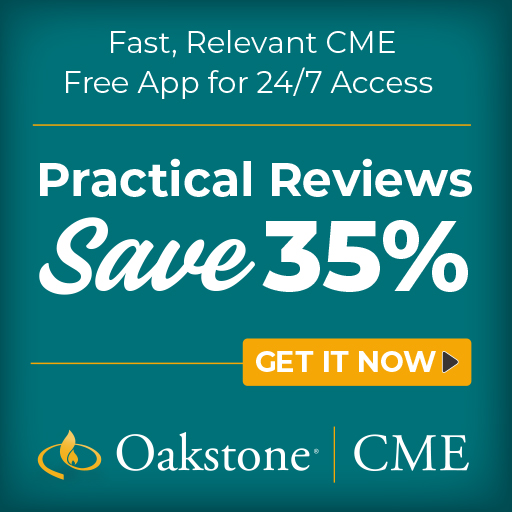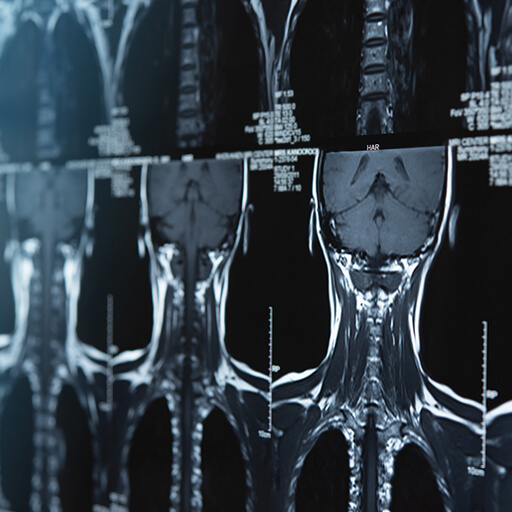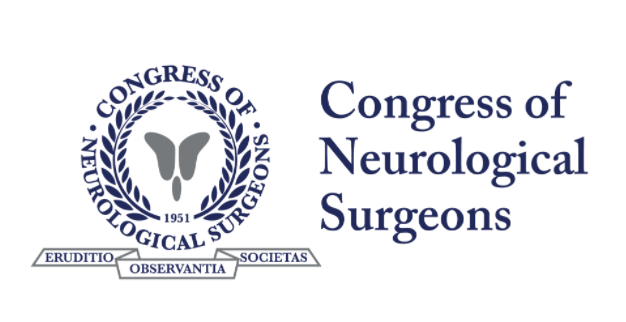Neurosurgery CME
1 - 8 of 8 results
Oakstone CME CMEinfo Insider
Get up to a $3,200 discount with a CMEinfo Insider subscription.
Features include:
- Earn unlimited AMA PRA Category 1 CreditsTM
- MOC Points
- 20+ Specialties
CMEinfo Insider offers online board reviews, journal summaries, and clinical updates.
See full details chevron_right- Cost: $1999$999
- Credit hours: Unlimited
- CME credits awarded by: Oakstone Publishing
- Format: On-Demand Online, Online Video, Online Audio
- Material last updated: Continuously Updated
Oakstone CME Practical Reviews
Practical Reviews offers journal summaries from leading medical journals. This activity makes earning CME credits quick and easy and helps physicians stay up to date on the latest advances and news in their specialty.
Practical Reviews is offered in over 20 specialties and can be accessed via online video, online audio, audio cd, or the convenient Practical Reviews mobile app.
See full details chevron_right- Cost: Varies depending on course
- Credit hours: 56-70
- CME credits awarded by: Oakstone Publishing
- Format: On-Demand Online, Online Video, Online Audio, Audio CD, Mobile App
- Material last updated: Continuously Updated
- SAVE 15% W/ CODE: CME15
Oakstone CME What My Mistakes Taught Me
Expert Clinicians Share Lessons Learned from Medical Mishaps
What My Mistakes Taught Me is a truly unique and illuminating online CME program. In 22 one-hour lectures, physicians from different areas of medicine and surgery discuss the expertise they’ve gained from problems, mistakes, and errors in clinical practice.
Led by Martin A. Samuels, MD, these experienced clinicians share case studies and the take-away messages learned from their own medical mishaps, emphasizing that:
- While we’re not perfect, we’re still valued contributors to our profession and society
- Perceived mistakes help us live with our imperfections and strengthen our integrity
- Recognized mistakes tell us what works and what doesn’t
- Accepting mistakes helps us take responsibility for erroneous ideas or actions
- Open acknowledgement of mistakes inspires others to do likewise
- Cost: $695
- Credit hours: 19
- CME credits awarded by: Oakstone Publishing, LLC.
- Material last updated: July 15, 2021
- Expiration of CME credit: July 24, 2024
- SAVE 15% W/ CODE: CME15
Oakstone CME Neurosurgery — A Comprehensive Review
Neurosurgery CME from the Experts
This online CME program is broad and deep in its coverage of neurosurgery subspecialty areas. Led by Ian F. Dunn, MD, FAANS, authoritative speakers with extensive subspecialty training present the latest technical innovations and surgical techniques, along with pearls and pitfalls from their own clinical practices. Neurosurgery – A Comprehensive Review delivers key take-home points with each lecture, including:
- Vascular Malformations. Intracranial vascular malformations are best treated with multimodality therapy, including microsurgery, embolization, and stereotactic radiosurgery in different combinations.
- Management of Severe Traumatic Brain Injury. Modern management of traumatic brain injury involves improving outcomes via minimizing secondary injury.
- Cervical Spine Trauma. The need for surgical stabilization after cervical trauma depends on the extent of bony, discoligamentous, and neurologic compromise.
- Brachial Plexus Lesions. Nerve transfers have a role in reconstructing function in brachial plexus injuries.
- Meningiomas. Threat of recurrence is directly related to the extent of surgical removal.
- And more…
Learning Objectives
At the completion of this course, you should be able to:
- Differentiate among intracranial aneurysms by etiology
- Decide on when and how to treat arteriovenous malformations
- Describe the preoperative, intraoperative, and postoperative considerations in skull base surgery
- List the complications possible in frontal sinus surgery
- Differentiate among benign, malignant, intraneural, and extraneural peripheral nerve tumors
- Explain the ideal circumstances for resection of meningiomas
- Compare Type I, Type II, Type III, and Type IV classifications of nerve sheath tumors
- Identify the possible causes of hydrocephalus
- Describe the classic presentation and symptoms of craniopharyngioma
- Name the benefits of minimally invasive surgery over open surgery for disc herniation
Intended Audience
This educational activity was designed for neurosurgeons in practice, neurosurgery fellows, residents, nurse practitioners and physician assistants working in neurosurgery.
See full details chevron_right- Cost: $1095
- Credit hours: 35.50
- CME credits awarded by: Oakstone Publishing, LLC.
- Format: On-Demand Online, Online Video, Online Audio, Audio CD
- Material last updated: June 1, 2021
- Expiration of CME credit: June 1, 2024
- FREE
Contemporary challenges and updates and in the diagnosis and management of Alzheimer’s disease – from early disease onward
Activity Description / Statement of Need:
In this online, self-learning activity:
Alzheimer disease (AD) is a degenerative disease that most commonly affects the elderly, although it is occasionally detected as early as middle age. AD’s prevalence has more than doubled since the year 2000, with recent data suggesting that it will double again by the year 2050. In 2020, AD was the seventh-leading cause of death in the US, and the COVID-19 pandemic has further increased AD-related mortality by 16%. Furthermore, AD impacts the family members and loved ones of people with AD. More than 11 million Americans are estimated to provide 15.3 billion hours of unpaid care, with costs expected to exceed $1 trillion by the year 2050.
AD has traditionally been difficult to diagnose because its onset is oftentimes insidious, with a definitive diagnosis made only on neural tissue examination. The disease is often undetected in its early stages because the symptoms can be similar to cognitive decline that is generally assumed to occur naturally with the aging process, such as forgetfulness and difficulty learning new information. When a patient presents with possible AD, the gathering of information from the family members and specific cognitive tests are used to rule out other possible diseases and to rule in the probable diagnosis of AD. While a number of different practice guidelines are available, but none are recent enough to cover the incorporation of monoclonal antibodies into care and developments in the treatment of early Alzheimer’s disease, including eligible candidates for therapy. Helping the clinician discern the role of these agents merits CME as research suggests that HCPs are unable to keep up with the publishing of literature and evolution of clinical practice.
Target Audience:
The following HCPs: Neurologists and primary care physicians; physician assistants, nurse practitioners, and pharmacists who practice in neurology; and any other HCPs with an interest in or who clinically encounter patients with AD or who frequently encounter them or their caregivers in practice.
See full details chevron_right- Cost: Free
- Credit hours: 1
- CME credits awarded by: ScientiaCME
- Format: On-Demand Online
- Material last updated: 7/8/2022
- Expiration of CME credit: 7/8/2024
- FREE
BroadWater CME Activities
BroadWater offers CME webinars and meetings.
Examples of topics covered are:
• Basic Orthopaedic Principles
• Foot and Ankle Pain: Evaluation and Management
• Hand and Wrist Pain: Evaluation and Management
• Hip Disorders: Evaluation and Management
• Knee Disorders: Evaluation and Management
• Pediatric Upper and Lower Extremity Disorders
• Shoulder and Elbow Pain: Evaluation and ManagementTarget Audience: Neurologists, Neurosurgeons, and Orthodontists.
See full details chevron_right- Cost: Free
- Credit hours: Varies depending on course
- CME credits awarded by: Medical Education Resources, Inc., and BroadWater, LLC.
- Format: On-Demand Online, Live Online Meeting
- FREE
Medscape Neurology
CME activities of special interest to neurologists and neurosurgeons. Medscape contains a variety of educational formats:
CONFERENCE COVERAGE – Reports of advances presented at major medical conferences; typically includes several tracks with news stories, expert interviews, and in-depth topic overviews.
CLINICAL UPDATE – Comprehensive original review article on scientific advances in a clinical topic.
FAST TRACK CLINICAL UPDATE – Narrowly focused original review article on scientific advances in a clinical topic.
CME-LIVE – Real-time online events with streaming video, synchronized visuals, and interactive questions and answers; archived for 1 year.
CLINICAL BRIEFS – Daily reports of major current medical research articles; 0.25 credits each
JOURNAL CME – Articles selected from a wide selection of peer-reviewed journals.
SPECIAL REPORT CME – Topic-based monthly email newsletter distributed to Medscape’s professional member database by specialty.
INTERACTIVE PATIENT CASES – Original CME activity presented to the physician in an interactive, clinical case-based format. (See especially eMedicine CME Case Presentations.)
CME CIRCLE – Multimedia content certified by other accredited professional education providers, typically from live symposia or monographs, and then posted on Medscape and archived for one year.
Target Audience: Neurologists
See full details chevron_right- Cost: Free
- Credit hours: Varies depending on course
- CME credits awarded by: Medscape and many other sponsoring organizations
- Format: On-Demand Online, Online Video, Online Audio
- Material last updated: Continuously Updated
SANS (Self-Assessment in Neurological Surgery)
SANS is a required component of the American Board of Neurological Surgery (ABNS) three-year MOC cycle (Lifelong Learning and Self-Assessment).
SANS represents all areas of general and subspecialty neurosurgical practice. Teaching materials consist of text, pictures, video clips and links to relevant Internet sites.
Physicians answer questions in specific topic areas, reviewing their answers, and reading question critiques.
Target Audience: Neurosurgeons
See full details chevron_right- Cost: $15 - $25 per hour
- Credit hours: Varies depending on course
- CME credits awarded by: Congress of Neurological Surgeons (CNS).
- Format: On-Demand Online








